Bangs and Whimpers
In which Norm notices some curious similarities in Mimi Leder's DEEP IMPACT and M. Night Shyamalan's KNOCK AT THE CABIN.
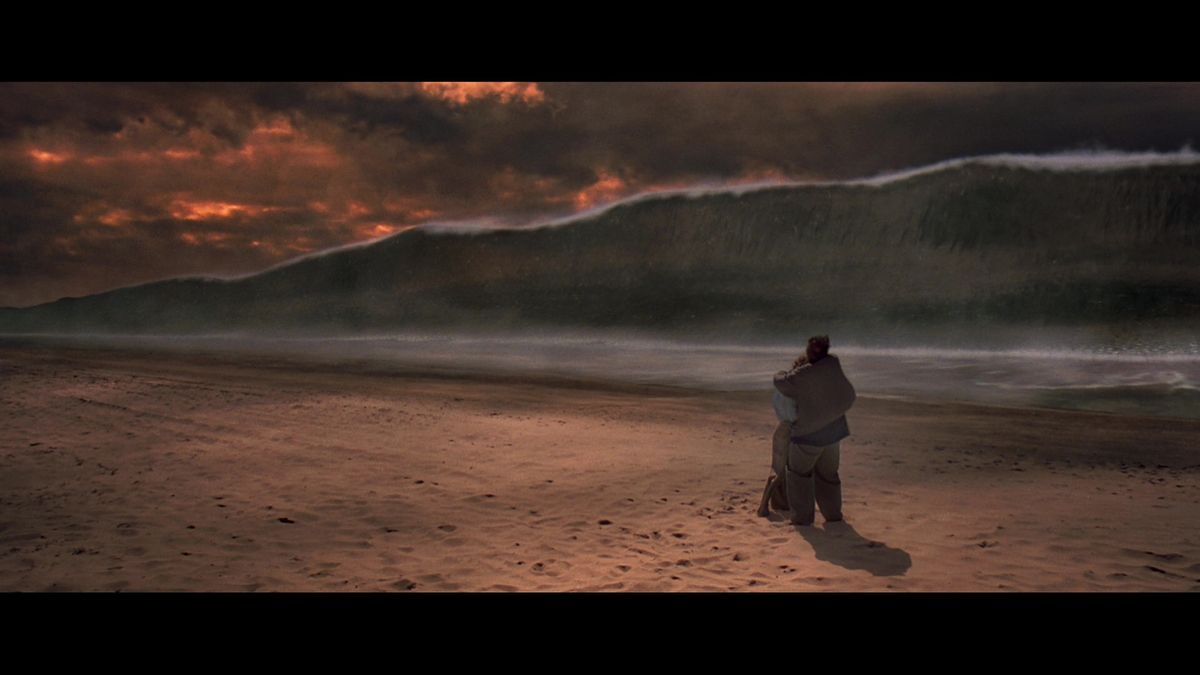
Hey, everyone! Apologies for not hollering at you sooner, as they say, but this week has been a blur of activities, from the last Secret Movie Club of the 2022-23 season (Nicole Holofcener’s You Hurt My Feelings, and you should see it when it opens later this month) and the launch of Graham Foy’s exquisite teen drama The Maiden (playing right now, and you should see that too) to a whole bunch of extracurricular stuff that’s eaten up my other evenings. It’ll all be worth it in the end, but at the moment I am four kinds of exhausted and barely functioning, if you want to know the truth of it. Wanna talk about the end of the world?
Apocalypses used to be things that were averted at the last minute. Sure, you’d have the odd alien invasion or nuclear exchange, but for the most part movies and TV shows ended just before stuff got really bad … or started in the aftermath, to avoid all the unpleasantness. (One key exception was When Worlds Collide, about which more shortly.) The disaster movies of the ’70s acclimated audiences to the spectacle of mass destruction, but unless I’m missing something really obvious, Meteor was the only one with sci-fi trappings. (I don’t think The Andromeda Strain qualifies as a disaster movie; it’s more of a theoretical thriller, really.) And Meteor was kind of cheap.
In the early ’90s, though, Terminator 2: Judgment Day and Jurassic Park ushered in a new age of digital wonder, putting liquid-metal cyborgs and rampaging dinosaurs right there next to Linda Hamilton and Sam Neill – and leading other filmmakers to start wondering what else might be possible. In no time at all, Chain Reaction dropped a nuclear detonation on a Chicago neighborhood, Twister and Volcano and Dante’s Peak unleashed natural disasters across America … and then, in 1998, Paramount and Disney turned their eyes to the stars to imagine even bigger threats.
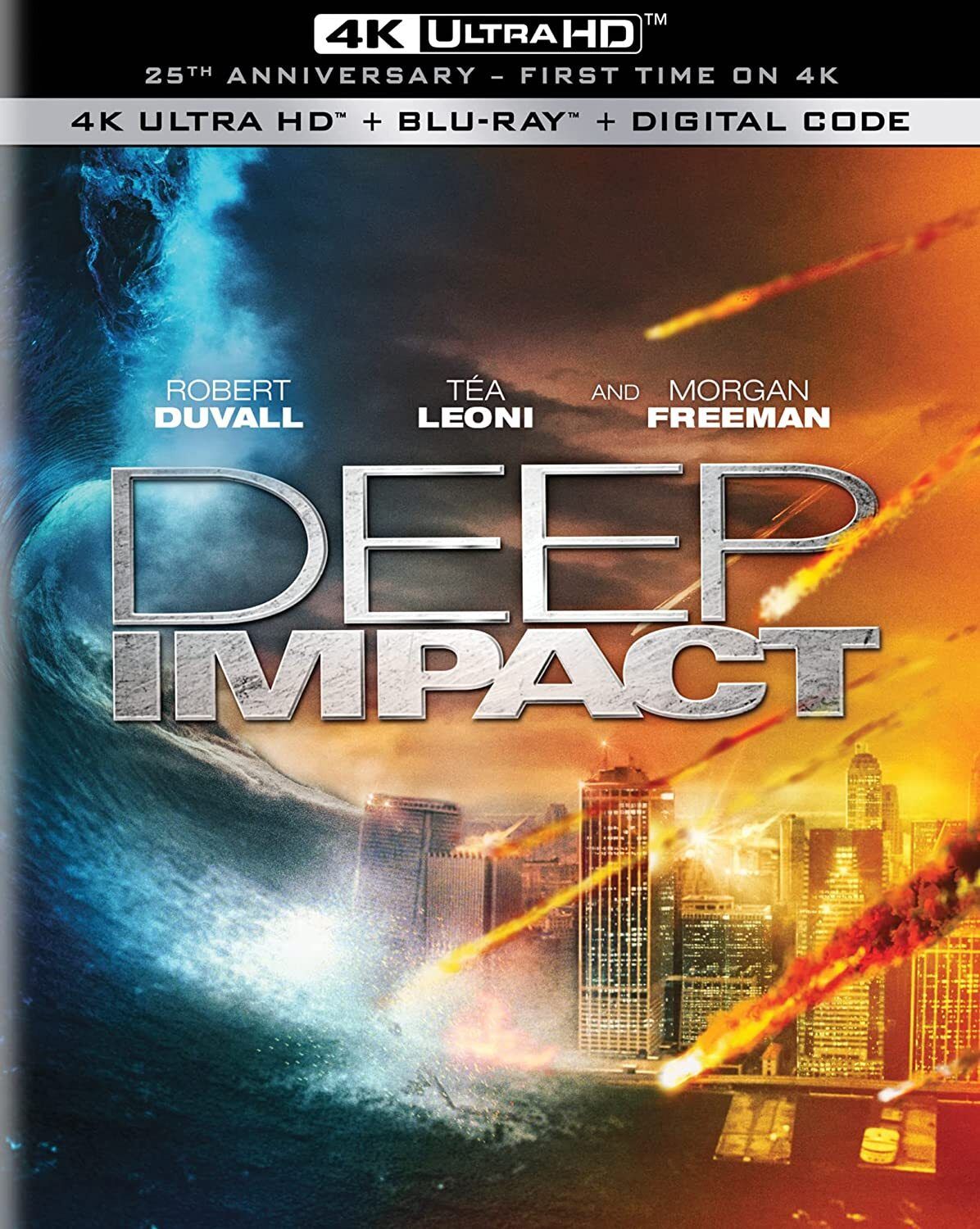
Okay, so Deep Impact involves a comet while Armageddon hurls a meteor at us. The end result is the same: Big scary space thing barrels towards Earth, pulverizing global landmarks and obliterating a few major cities as a crew of heroes scramble to intercept and destroy the threat before the planet-killer can reach us. The difference is that Armageddon is one of the dumbest movies ever made – all explosions and screaming and screaming explosions – and Deep Impact is actually trying to be about something.
It's weird that Deep Impact should make it to 4K before Armageddon, come to think of it; maybe Michael Bay is doing a James Cameron and insisting he personally approve every frame. (Or maybe a surprise Criterion edition is in the works; that’d be fun.) But Mimi Leder’s disaster drama – written by heavy-hitters Bruce Joel Rubin and Michael Tolkin – remains a compelling contrast to Bay’s bonehead blockbuster; while Armageddon has only grown cheesier with the decades, Deep Impact looks smarter, and sadder, than ever.
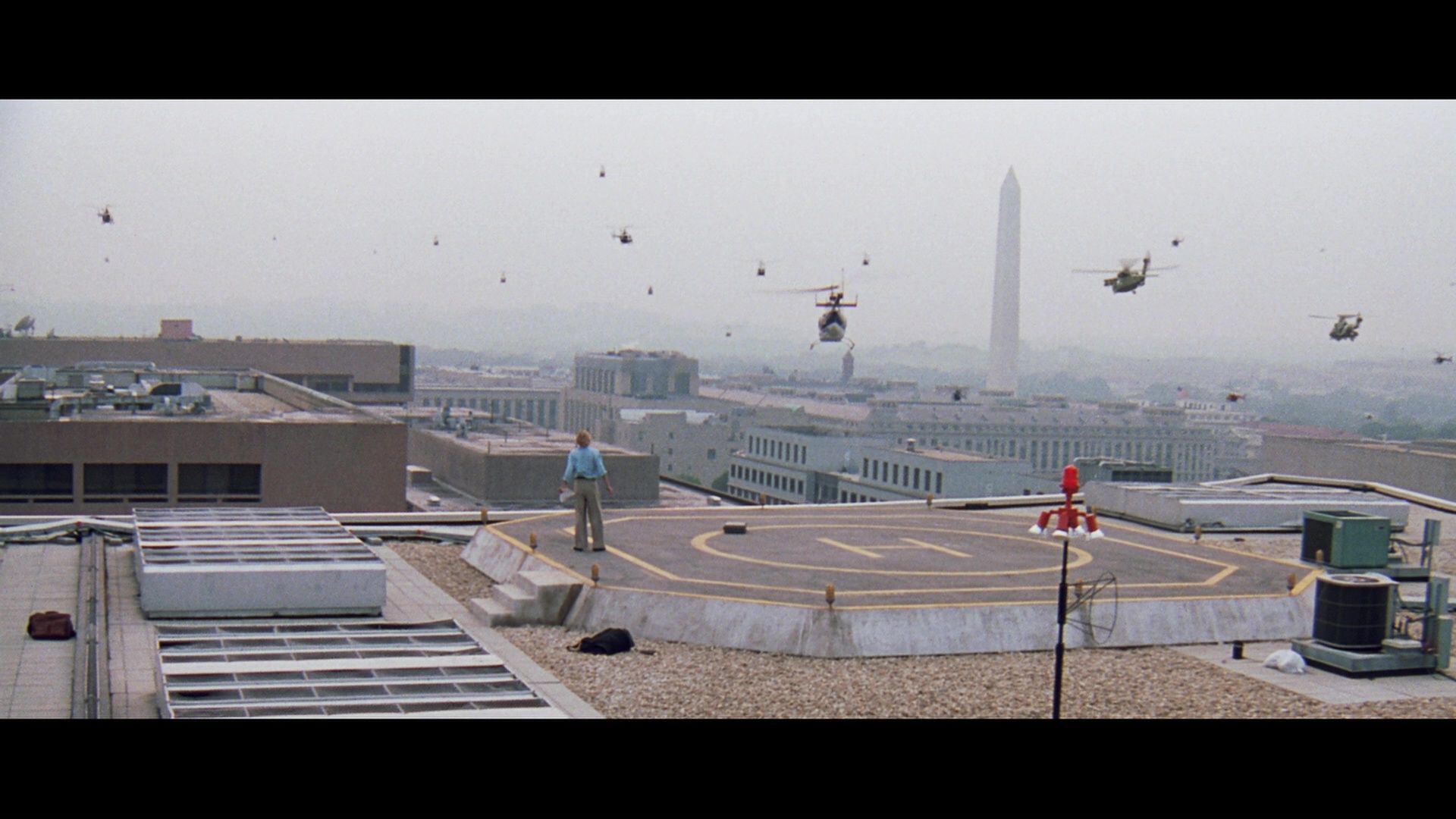
A tightly focused narrative despite the global stakes, Deep Impact follows a handful of characters through the end of the world – Elijah Wood as the kid who discovered the comet, Téa Leoni as the television journalist who stumbles onto the story, and Robert Duvall, Ron Eldard, Blair Underwood, Mary McCormack, Aleksandr Baluev and a post-Swingers, pre-Iron Man Jon Favreau as the astronauts sent to nuke it. Their stories open up to accommodate a dozen or so other key supporting characters, among them Vanessa Redgrave and Maximillian Schell as Leoni’s parents, Leelee Sobieski as Wood’s girlfriend, and – of course – Morgan Freeman as the President.
It's hard to believe that 25 years ago this casting was seen as the biggest leap of the movie, but believe me, it was. (At the preview screening in the spring of 1998, someone behind me said, “Well, maybe the real president died?”) Questions of legitimacy aside, Freeman is perfect for the role – he can do gravitas in his sleep, but here he allows himself to have fun with it – telling people how things are going to go and waiting for them to catch up. His scenes with Leoni are downright charming, as their characters develop an unexpected respect for one another’s positions – it’s not flirtatious at all, that’d be weird. It’s just two people getting along really well, and being surprised by it. I found myself wishing they’d had more time together, but I guess that’s the point.
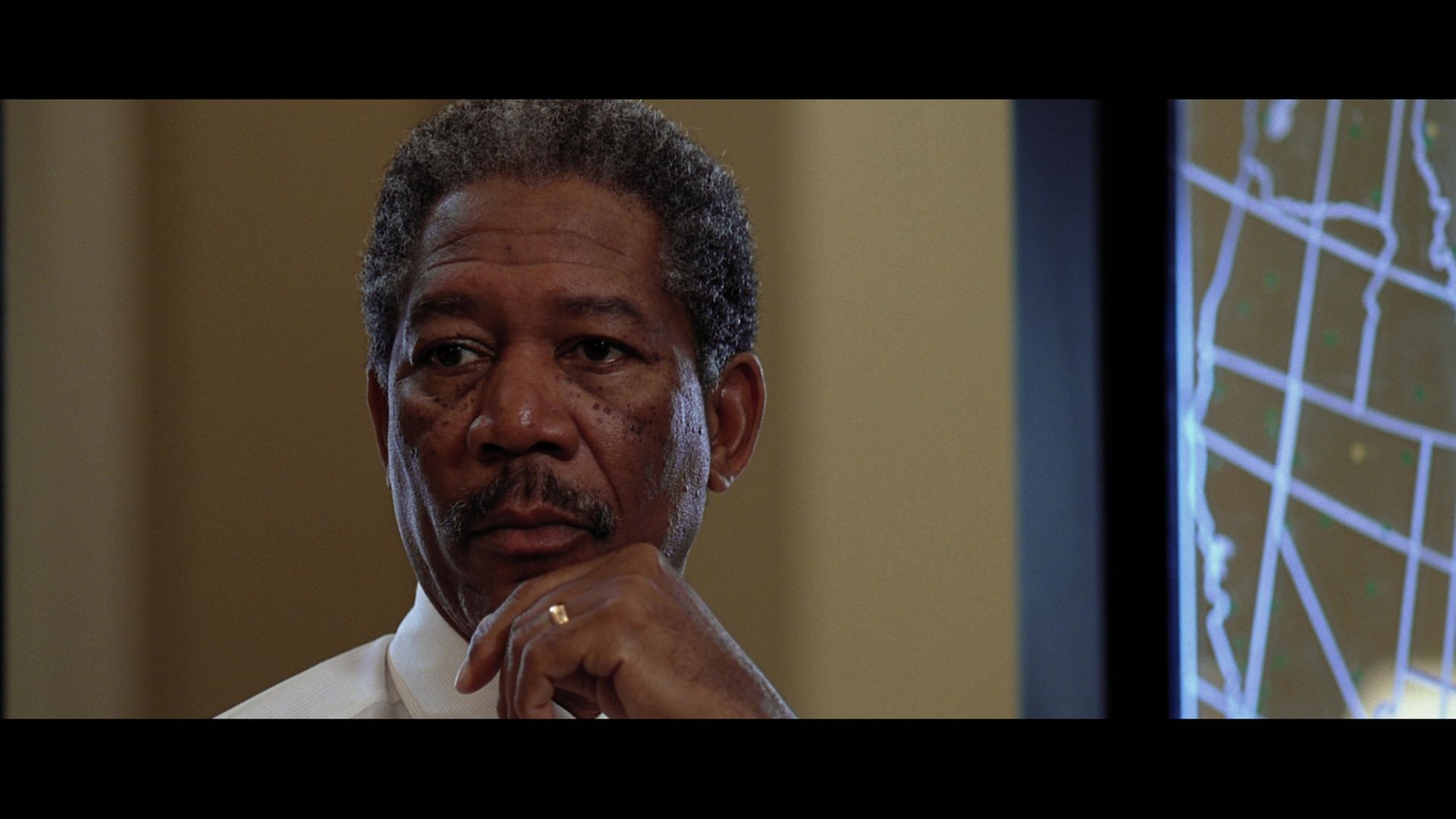
If I’m being honest, this is an amazingly well-cast movie, testament to both Leder’s feel for rising stars and interesting character actors – and also to DreamWorks’ insistence on sparing no expense when putting the picture together, since this was its first big effects movie. And pulling most of the actors from television – in addition to Leoni, Eldard and Underwood, Richard Schiff, Laura Innes, Bruce Weitz, Mark Moses, Mike O’Malley and Kurtwood Smith were mostly doing small-screen work at the time – works to keep the audience off-balance; none of these people was a big enough name to guarantee their survival. Dougray Scott as Leoni’s cameraman? Who’s he?
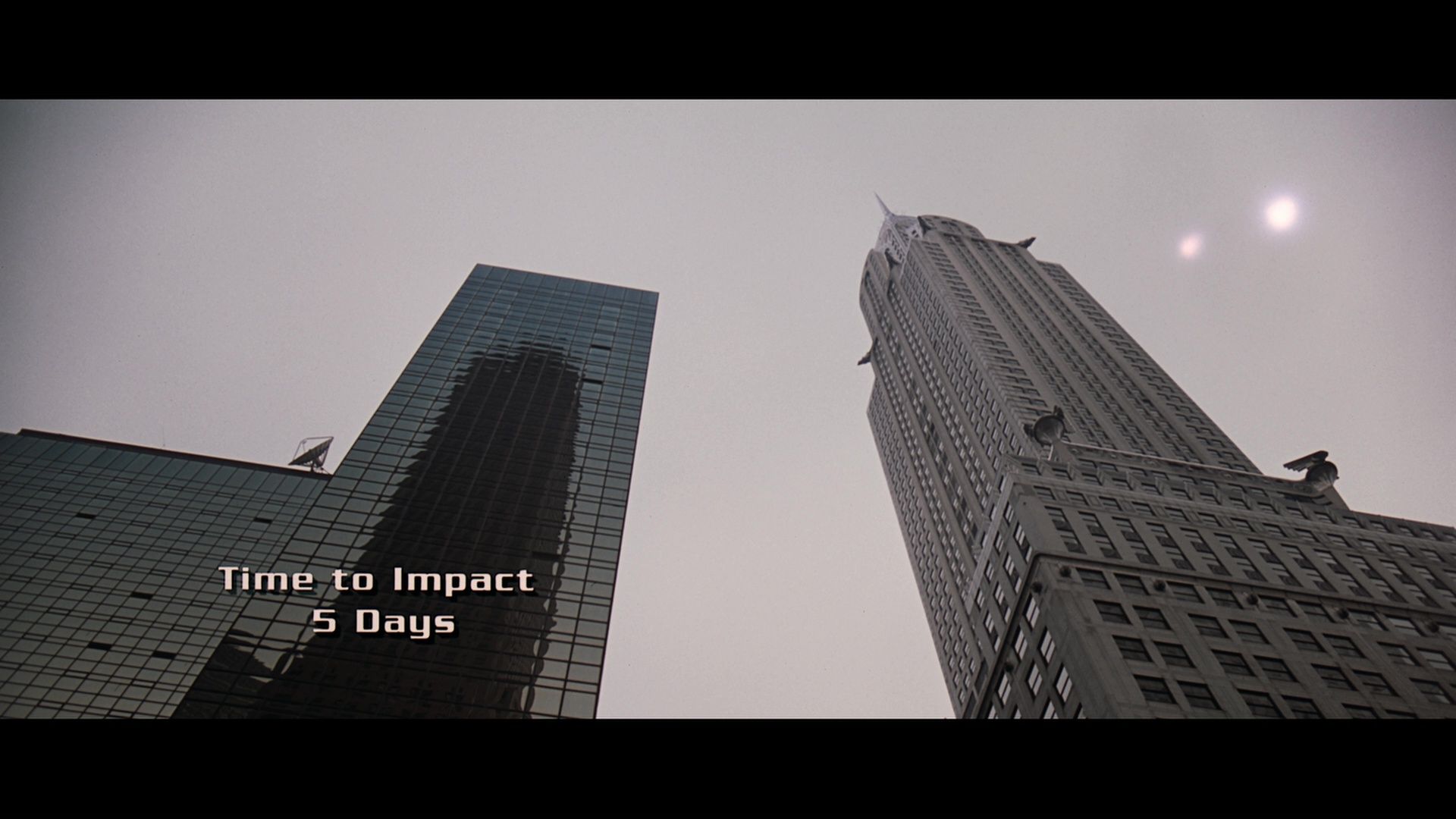
The tone of the film keeps things ambiguous as well: For the longest time – and because the marketing is based around images of a giant explosion somewhere on Earth’s surface – it feels like the planet really is doomed. The story goes that the project evolved out of an attempt to develop a remake of When Worlds Collide, only to get bogged down in the second act as the writers became more and more interested in how humanity would respond to our collective death sentence. And that theme is front and center in Deep Impact, as characters process the news over and over again, giving us time to wonder how we’d react. When the Messiah’s first sortie to the comet goes disastrously wrong and all hope seems lost, Leder lets her characters sit in their despair before ramping up to the big finale. It’s a strangely graceful way to tell this sort of story, and I wonder why no one else has ever really attempted it.
… well, except for M. Night Shyamalan. (Twist!) Shyamalan’s made a couple of movies that are explicitly about the world ending, at least from the perspective of its characters: Signs and The Village both present their protagonists as if they were the last people on the planet, and looking back most of his films take place in some sort of isolated locale. His latest, Knock at the Cabin, once again finds its heroes facing a very personal apocalypse, a long way from anyone else.
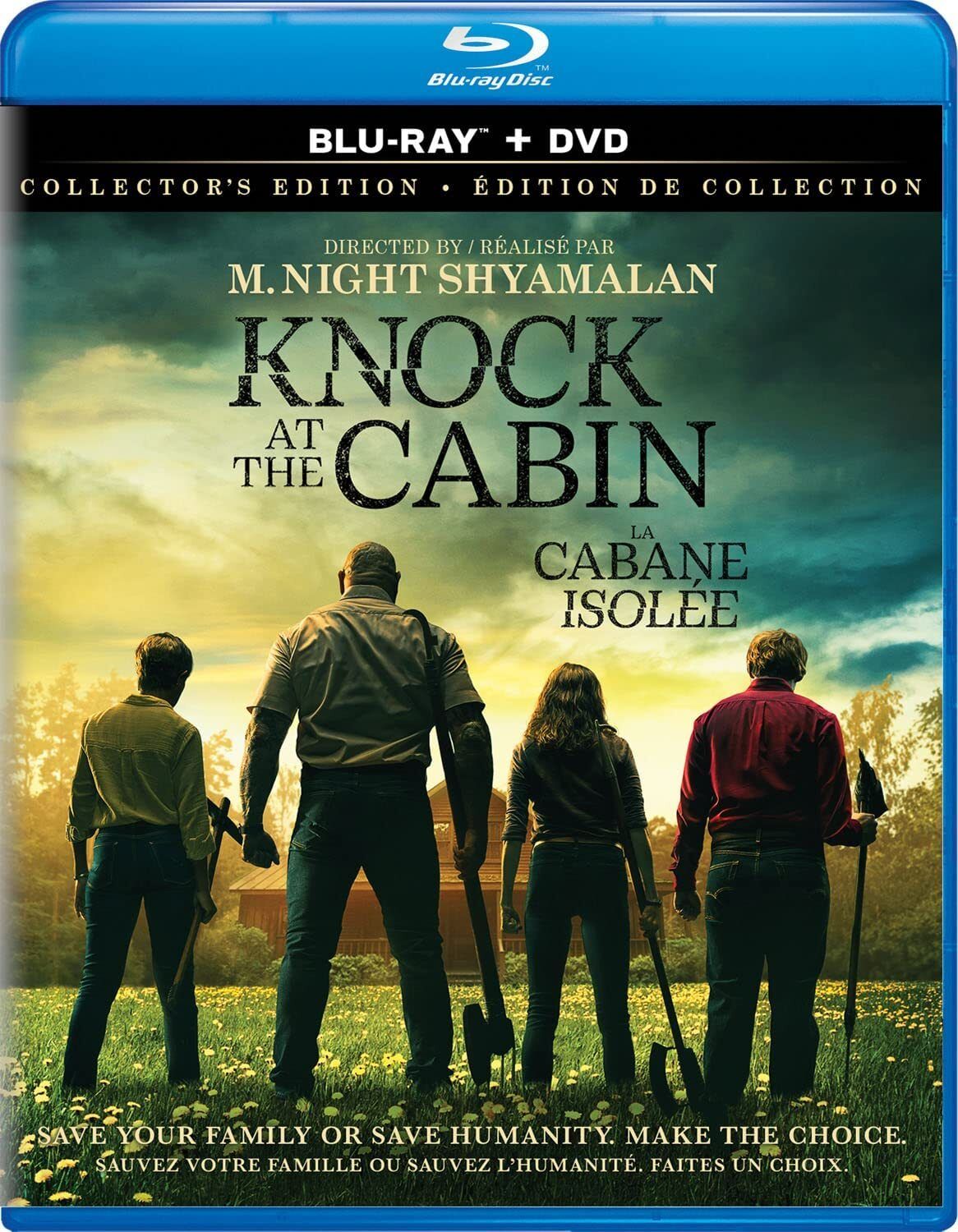
Eric (Jonathan Groff) and Andrew (Ben Aldridge) are vacationing with their daughter Wen (Kristen Cui) at their woodland cabin when four people – played by Dave Bautista, Nikki Amuka-Bird, Abby Quinn and Rupert Grint – turn up and politely inform them that the world is coming to an end, and the only way to prevent it is for a family to kill one of their own. Dying by suicide isn’t an option, and neither is goading one of the visitors to murder; Eric, Andrew and Wen have to choose this, and make it happen.
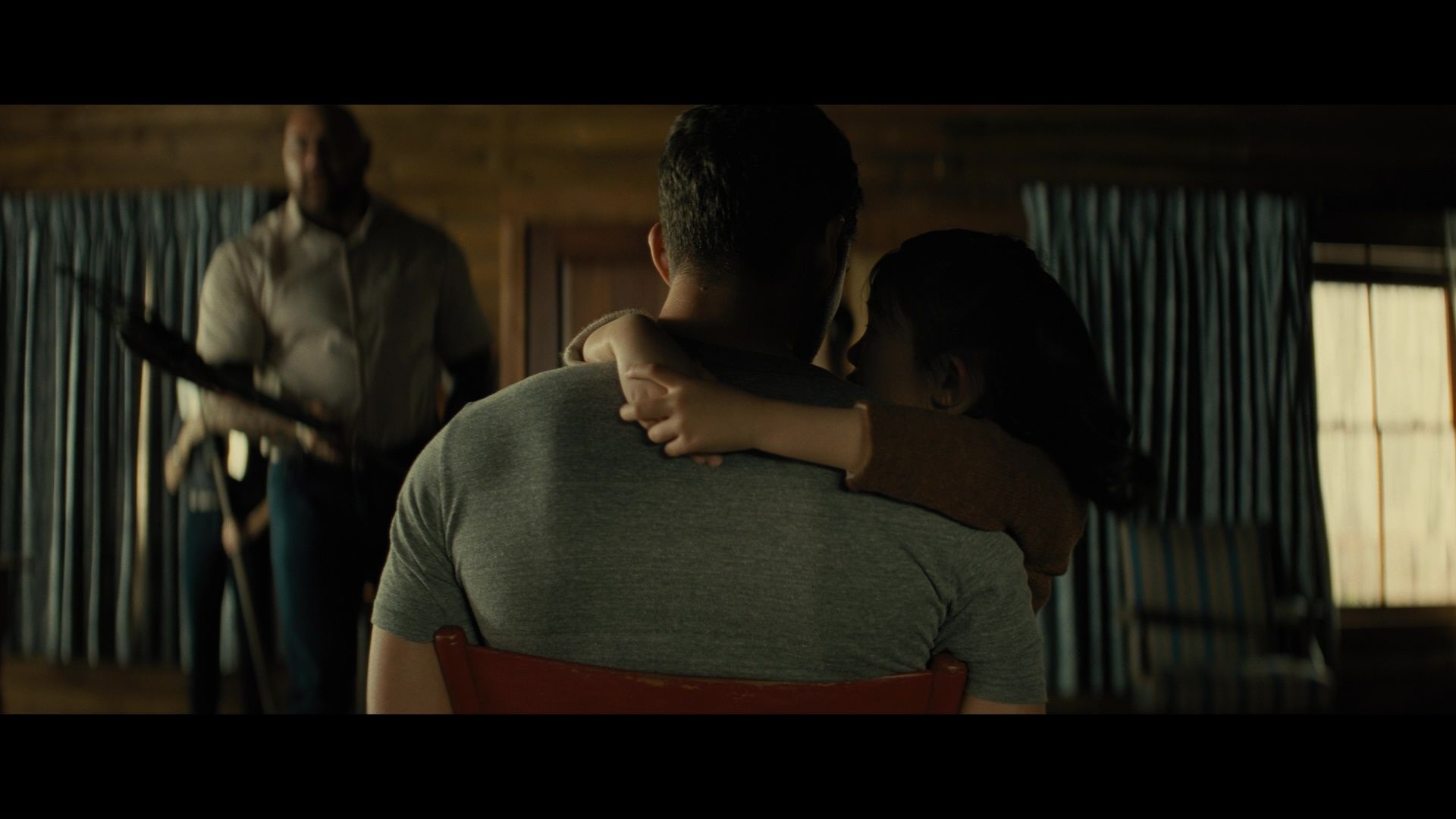
Using Paul G. Tremblay’s novel The Cabin at the End of the World as inspiration in much the same way he spun Pierre Oscar Levy and Frederik Peeters’ graphic novel Sandcastleinto Old, Shyamalan crafts a horror movie around Tremblay’s thought experiment: Would you murder someone you love to save the world? As in the book, Eric and Andrew immediately start pushing back on their captors’ demands, trying to understand the whys and hows of it and opening up a kind of philosophical debate on the nature of faith and the Biblical concept of an omnipotent, omniscient god; that’s Shyamalan’s jam, son, and he absolutely goes to town on the puzzle he’s built for himself, giving the heavies as many opportunities for self-doubt as their captives have to doubt the mission.
Casting Bautista as de facto leader Leonard is a masterstroke; as Denis Villeneuve pointed out in Blade Runner 2049, the action star is even more compelling when he’s being quiet and thoughtful, and the sorrowful note he hits here is almost painful to watch. Leonard’s conviction is unshakable, and also riddled with guilt; he knows something terrible is going to happen here, and it’s his burden to be the one who sets it in motion. It’s a really tricky character to play – a sort of apologetic zealot – and holy crap does he knock it out of the park.
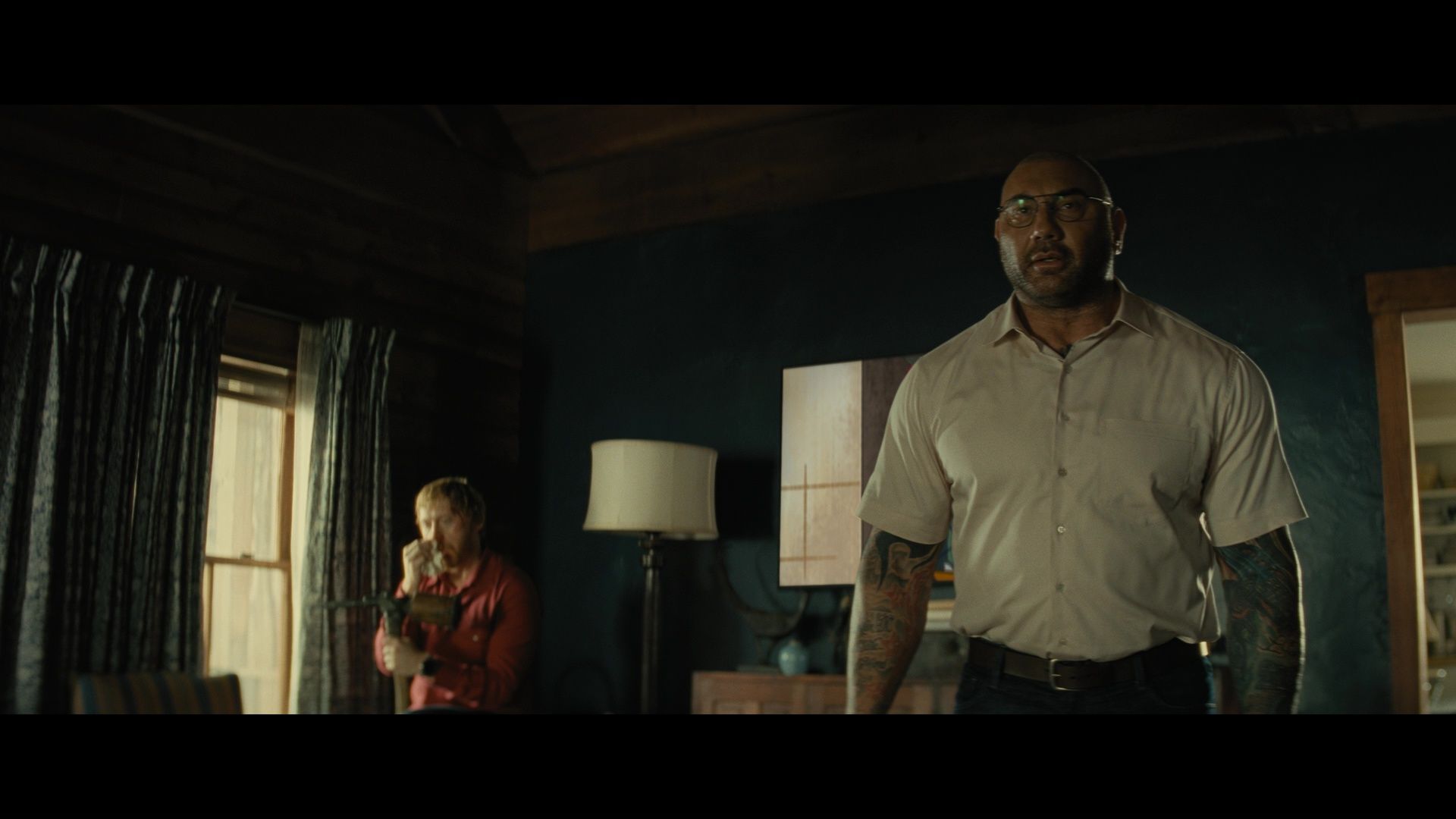
I wish the movie did too, but Shyamalan can’t help himself; once again he’s chosen to adapt ambiguous material, and once again his aversion to ambiguity forces him to kneecap the finale. Old had that exhausting epilogue where we discover the evil corporate conspiracy behind the Beach That Makes You Old, erasing Sandcastle unsettling metaphor of the awful, random nature of mortality; Knock at the Cabin changes the ending of Tremblay’s book to remove all doubt as to what’s been going on, and in doing so takes away the complexity of its choices and maybe even the meaning of Tremblay’s story. Right up until that point, it’s a solid drama that nudges right up against the edge of true horror – the sense that we’re right on the verge of understanding just how little our lives matter, and how much that knowledge can change a person. But then, pfft.
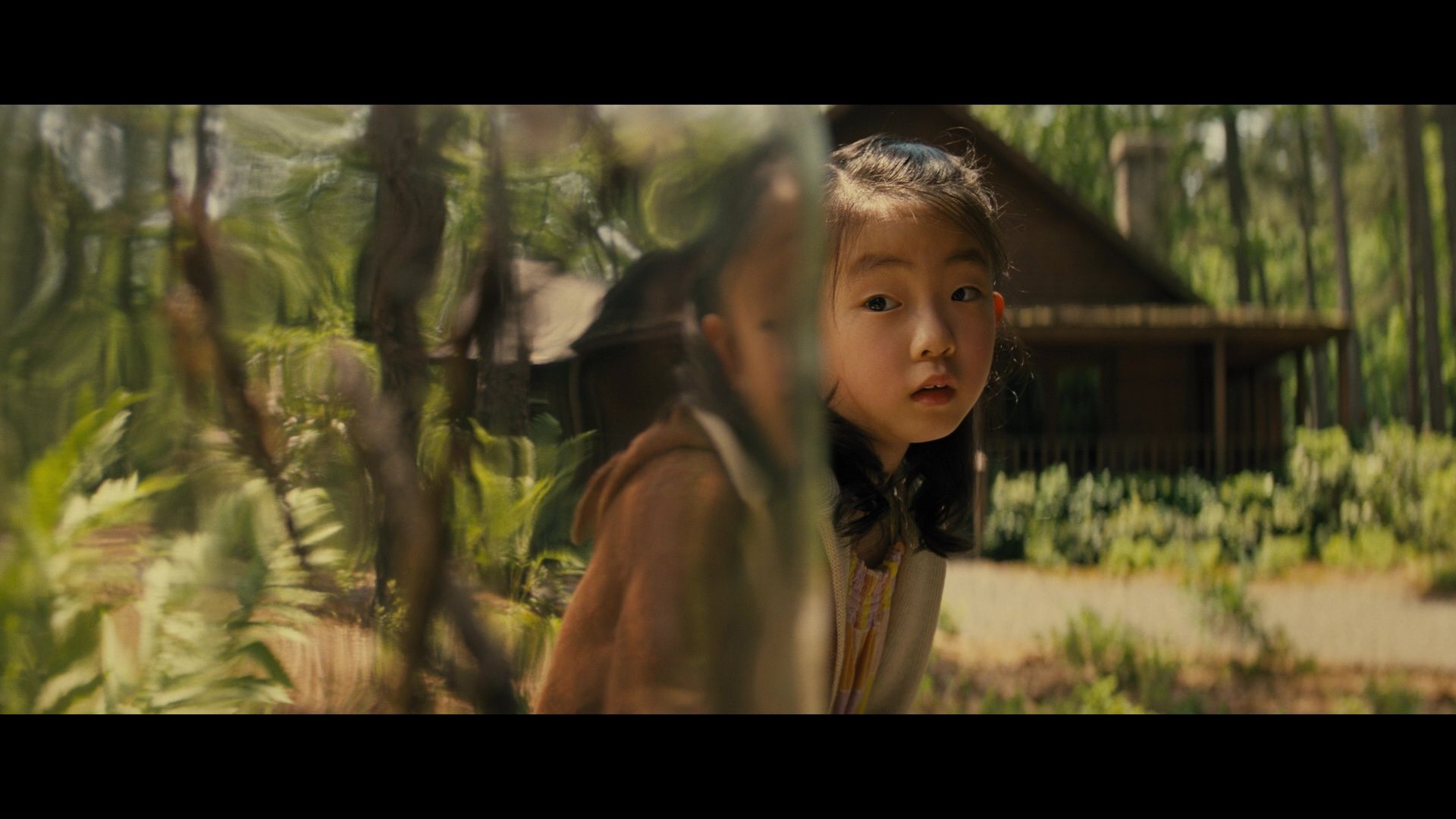
Universal’s Blu-ray of Knock at the Cabin – I still can’t get them to send me 4K discs – is a beaut, with a transfer that plays up the warmth and eeriness of the aesthetic created by Shyamalan and his dual DPs Jaren Blaschke and Lowell A. Meyer. (The movie was shot on film and tweaked digitally in post for a slightly unrealistic quality; the air looks strange, is the best way I can put it.) The effect is further enhanced with a Dolby Atmos soundtrack that plays with our idea of silence and stillness in unexpected ways. Shyamalan’s a technical master, and long has been; once again, I just wish he’d let someone else read his scripts before he shoots them.
The disc includes a supplemental suite best described as “pleasantly polished” – a 20-minute making-of, four deleted scenes (and an extended version of Shyamalan’s latest self-conscious cameo) and three very short featurettes zooming in on the props, the storyboards and the casting of Kristen Cui. She seems like a nice kid, I hope she gets more work.
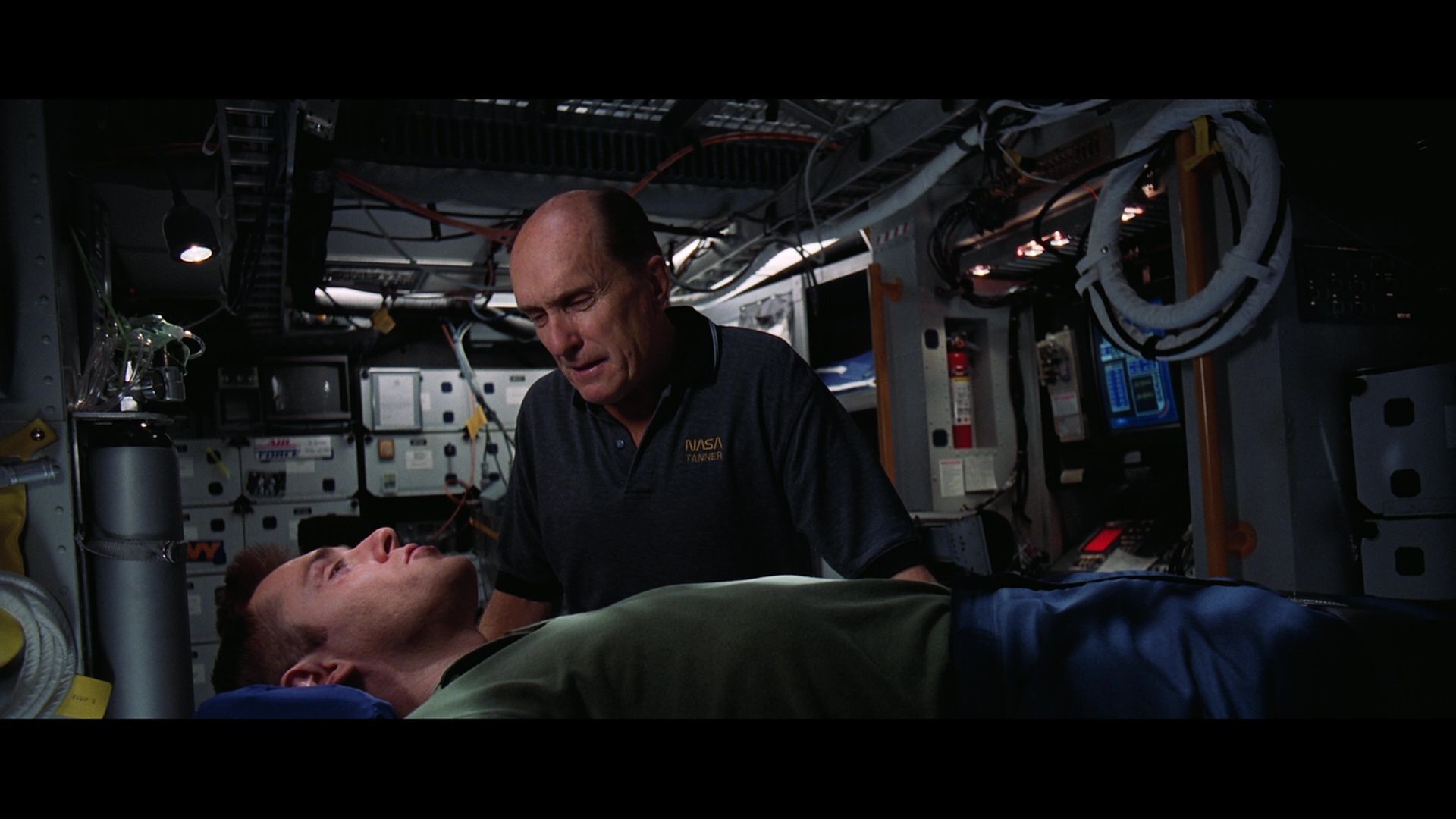
As with most of its 4K catalogue titles, Paramount’s UHD release of Deep Impact offers no new material; in fact, the Blu-ray that’s packaged with the disc is the same one released back in 2009, with a supplemental suite ported over from the DVD produced a decade earlier. But the remastered feature on that brand-new 4K disc looks and sounds just great, a throwback presentation to that moment in the industry when digital effects were starting to take over, but digital post-production had yet to gain a foothold. The late Dietrich Lohmann’s cinematography looks crisp and clear and – much to my surprise – the additional detail doesn’t reveal the seams on certain elaborate practical sequences, like the Messiah crew’s misadventures on the surface of Wolf-Biederman. I admit I was a little worried.
Knock at the Cabin is available on 4K, Blu-ray and DVD from Universal Studios Home Entertainment; Deep Impact is newly available in 4K from Paramount Home Entertainment. Collect ’em all!
In tomorrow’s paid edition: Flashdance, and why Tony Scott was the sort of filmmaker you should only watch in Ultra High Definition. Upgrade that subscription, folks.
